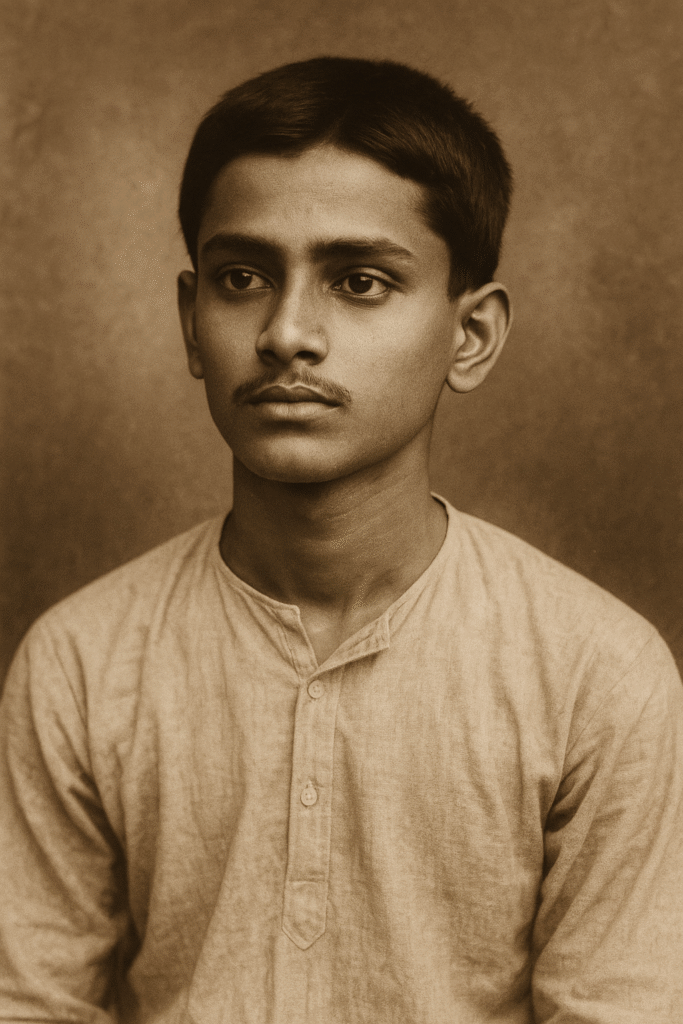In a world where freedom was only a distant dream, an 18-year-old boy dared to shake the foundations of the British Empire. His name? Khudiram Bose — a name many have forgotten, but whose courage sparked a fire that never died.

Born in 1889 in a small village in Bengal, Khudiram wasn’t much older than a high schooler when he joined the freedom struggle. Inspired by nationalist leaders and revolutionary literature, he began distributing anti-British pamphlets at just 15. But he didn’t stop there.
At 17, he took part in a secret mission — the assassination attempt on British magistrate Kingsford, notorious for harsh punishments against Indian nationalists. Alongside Prafulla Chaki, Khudiram waited outside Kingsford’s carriage route in Muzaffarpur. On April 30, 1908, they hurled bombs at the vehicle — but mistakenly hit another carriage, killing two British women.
Khudiram fled but was captured soon after, barefoot and hungry, with only a few rupees in his pocket. What stunned the British, however, wasn’t the act — but his fearless smile.

At just 18 years and 8 months, Khudiram was sentenced to death. His calmness at the gallows shocked even the executioners. “I am not afraid to die,” he reportedly said. “My country will remember me.”
But did it?
Today, his story lies in footnotes, erased from most schoolbooks. Yet he was one of the youngest revolutionaries to be hanged by the British. A teen — just like you — who believed freedom was worth everything, even his life.
🔍 Why it matters today:
In a world of instant fame and viral trends, Khudiram Bose reminds us of timeless courage — where youth was not about rebellion for chaos, but rebellion for purpose.
